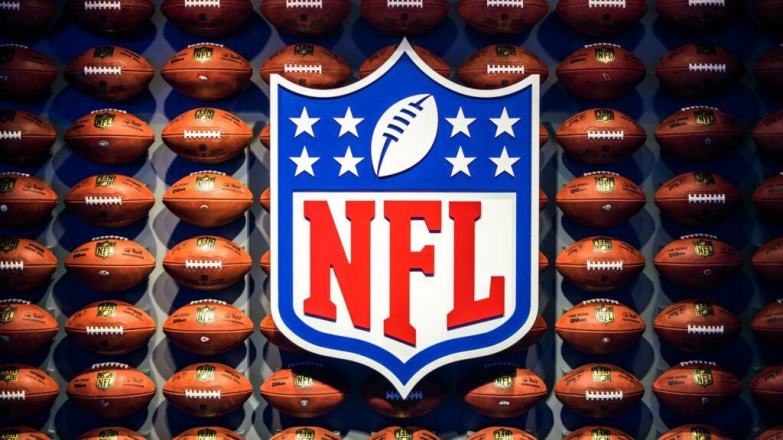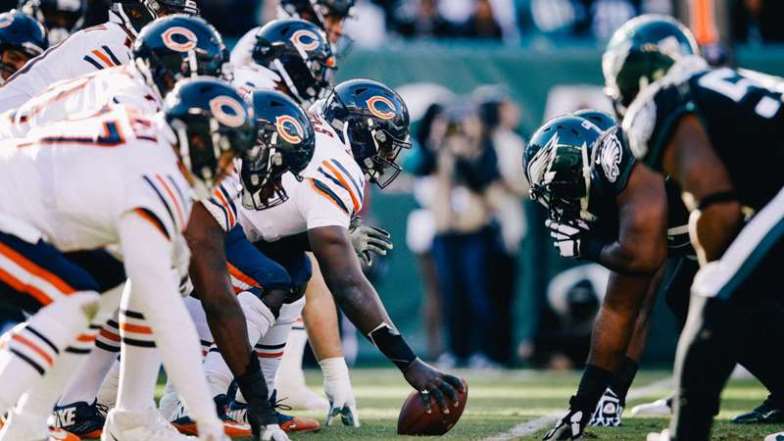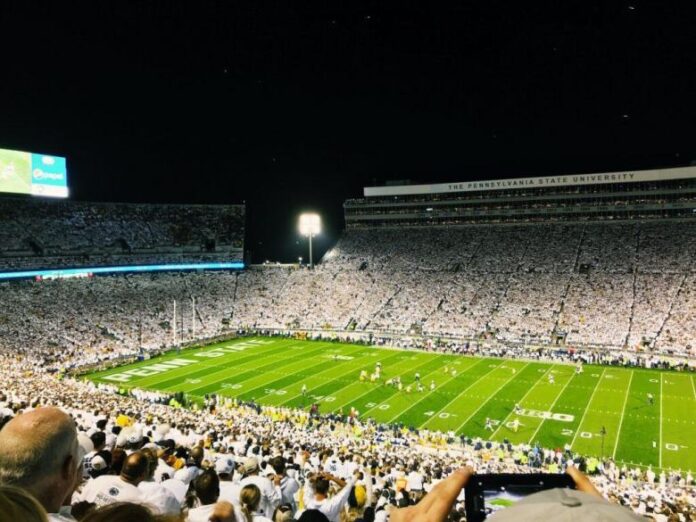The National Football League (NFL) is getting more and more popular, as shown by the fact that millions of people all over the world watch it. When we are having so much fun watching sports, we often lose track of the time. However, have you ever pondered the question: “How long is a football game?” When you watch a sport live or on television, you may get the impression that it goes on for a very long time; but, is this perception accurate?
1- How long Is A Football Game: NFL game length?
The total time spent playing is one hour, which is broken up into four periods of fifteen minutes each. There is a break of 12 minutes between each round. On the other hand, this just tells half of the tale, since it takes an average of three hours and twelve minutes to finish the game.
The standard length of time for an American football game is sixty minutes, with an additional fifteen minutes added to each half in the event that extra time is needed. This only relates to the National Football League. There is no time restriction placed on overtime played in college football.
Because of the interruptions in play caused by the penalty, the assessment, and the time that is given between innings, the game almost usually goes on for more than sixty minutes. The duration of the game is split into two halves of 45 minutes each, with each half consisting of four quarters of 15 minutes each.
The duration of the football game was more than one hour. It’s very uncommon for games to go on for two or even three hours, depending on factors like whether or not there was overtime. In addition, the time that is taken up by medical treatment and breaks for the media may add significantly to the total duration of a football game. Recent research has shown that a typical NFL game would run around three hours from start to finish.
You should now have a better understanding of the answer to the question, “how long is a football game?” or “How long are football games?“

2- How many quarters are there in football games? How many minutes are in an NFL quarter?
If you are familiar with the fundamentals of the game’s structure, you will have a far greater appreciation for the amount of time that will be spent watching an NFL football game.
First Round
Every game in the NFL is broken up into four quarters that each last 15 minutes. In between the second and third quarters, there will be a short break. In the event that the score is tied when regulation time ends, the extra period will be followed by sudden death. The extra-time winner is determined by which side scores first.
A quarter has 15 minutes. Two whole quarters make up the first half of the game. Following the conclusion of the first round, there will be a break of three minutes. Following that, the second inning will go for a further fifteen minutes. That brings the overall time for the first half up to 33 minutes.
Second Round
After then, there was a pause that lasted 13 minutes and 30 seconds, which was consistent with the standard set by the NFL in 2017. Nevertheless, it is tradition for there to be live entertainment at each and every NFL championship game.
How long is the gap that occurs during an NFL halftime show? The rest period between sets and the intermission break both last for a total of 12 minutes. On the other hand, the halftime break for the NFL Super Bowl is much longer. It is reasonable to anticipate that the halftime stoppages during the Super Bowl will continue longer than thirty minutes due to the presence of well-known celebrities who are watching the event.
In The Third Round
Following an interruption in play in the middle of the game, the third round now begins. After that, you should begin the countdown in 15 minutes. Following the conclusion of the third round, there will be a short pause of three minutes. The game continued with the fourth quarter, which lasted for the remaining 15 minutes.
This means that the first half will be 33 minutes, there will be a break of 30 minutes in the middle, and the second half will also last 33 minutes. As a result, the absolute least amount of time spent gaming is 96 minutes, which is equivalent to one hour and 36 minutes.
Final Round
If the final score from the previous quarter had stayed the same as the period came to a close, sudden death overtime would have been triggered immediately. The National Football League (NFL) once adhered to a game-time schedule that allowed 15 minutes for each quarter. But in 2017, this regulation was revised, and the waiting period was cut down to only 10 minutes. The game is won by whichever side scores first within the first ten minutes.
3- How long is the actual playing time in NFL games?
When you consider the variety of programs that are shown on television each week, it is easy to see why so many people like watching the National Football League (NFL). The typical length of time for a game of professional football is 3 hours and 12 minutes. However, if you simply calculate the time while the ball was being played, you’ll find that the real action only lasted 11 minutes.
One aspect that separates the two is how the fundamental rules of American football are played. In football, the 60-minute clock continues to run even while the ball is not in play, which is not the case in hockey or hoops. This implies that a significant amount of time is spent either moving about or acquiring resources before the start of each session.
The Wall Street Journal published an article a few years back that made famously estimated 11 minutes of action. According to the findings of its research, the typical NFL broadcast devotes 17 minutes more of its airtime to replays than it does to live coverage.
The majority of the time, which is around 75 minutes, is spent watching the players, coaches, and officials basically just hang around on the field. The National Football League’s typical game lasts barely four seconds.
Watching football on television is obviously about much more than simply the game itself. People may also be shown the many advertisements that are available. More than one hundred advertisements are shown during the typical NFL game, which has twenty commercial breaks. According to the findings of the investigation conducted by the Journal, advertisements consume around one-third of playtime time and approximately one hour.
In football, which lasts 45 minutes, broadcasters have to strategically place ads throughout the game. In contrast, football is full of stops and starts, which makes it a great way to advertise. In passing, I’d like to point out that televised broadcasts of NFL games in Europe have far fewer commercial breaks.
4- Why does an NFL football game take so long?

The most significant contributor to a game’s overall length in the NFL is the team’s ability to effectively control the game’s time.
The game is stopped, the time is stopped, and each side goes through a personnel change, rotating between their 11-man offensive and defensive groups. This happens whenever the ownership of the team changes.
The National Football League (NFL) makes the most of its extensive worldwide reach by taking advantage of commercial breaks during these stoppages in play while the clock is stopped. A typical game will include roughly 12 assets for each side, and each change will typically be accompanied by a wave of television advertising.
Consider factoring in approximately two video reviews of contentious calls, penalties, and three timeouts for each side, where they can choose to stop the clock and take a break with two minutes remaining at the end of each round, and obviously see the number of advertisements how the break time significantly increases the amount of time it takes to complete the game.
5- Are there overtime in an NFL game?
As was noted, the typical length of an NFL game is 3 hours and 12 minutes; however, this number may vary greatly depending on a number of factors.
In 2008, a game between the Tennessee Titans and the Indianapolis Colts shattered a record that had stood for 12 years for the quickest game in the National Football League (NFL). The game finished in 2 hours and 33 minutes, while other games are known to take as long as almost 4 hours. How can these timeframes differ by such a large margin?
The pace of the game may be altered by a number of different parameters. The game clock will keep ticking while the ball is within the playing field, whether it be during a run, a throw, or a situation in which a player is blocked while still being in bounds.
If there are a few plays that result in the ball carrier going out of bounds or incomplete passes, this will unavoidably eat a major portion of the sixty minutes that are allotted for the game, leaving little time for rest for the players more leisure.
In addition, teams are not required to utilize all of their allotted timeouts, and if there is just a little bit of turnover in ownership, this will also help to speed up the proceedings significantly.
6- Why are there stoppages in football games?
Even while commercial breaks have become an essential component of an NFL game, they are not included in the game until after each stage has been completed and play has come to a halt. The notion of American rugby may be baffling to the British sports market, which is used to seeing rugby or football contests that go for 80 or 90 minutes nonstop.
It has been determined that an average game only comprises 11 minutes of real football, and it is difficult to see why this must be completed in around three hours. However, each of these plays lasts an average of just four seconds, and within those four seconds, there is as much excitement and attention-grabbing action as one could possibly anticipate.
Despite the fact that a rugby player must remain mobile for the whole of an 80-minute match and respond to everything that takes place. The last four seconds of each and every rugby match are methodically organized and demand maximum effort.
The activity is frequently compared to a “physical game of chess,” in which each side has the opportunity to rest in between turns and then, in the forty seconds that pass between the conclusion of one turn and the beginning of the next, plan their next strategic move to either advance the ball further or halt their opponent.
7- How long does a football game last on TV?

Another ball game is watching an NFL game on television. It’s not just about sitting there and watching a game of American football. If you choose to watch an NFL game on television, you should expect to sit through around 20 commercial breaks, each of which may have more than 100 advertisements. Some industry experts claim that these television ads account for almost one-third of the total duration of the game, which is equivalent to approximately one hour of screen time.
As a direct consequence of this, NFL games shown on television may go on for as long as three hours and thirty minutes. Seven hours is the record for the longest game that has ever been played in the National Football League. Imagine if you were forced to spend practically all of your waking hours watching nothing but NFL games.
Discussion Pregame
A brief introduction from the show’s host is customarily included at the start of each National Football League game that is shown on television. The first thing he will do is have a roundtable conversation with a number of NFL pundits and the oldest players about what they think will happen in the next game. Before the start of the contest, there will often be one or two advertisements.
Review after the Game
Following the conclusion of the game, the host will start the postgame analysis. During this time, a video that provides a summary of the game that has just been completed will be played for a longer amount of time. In most situations, a server will be brought into the arena to do interviews with the game’s most valuable player (MVP), the winning coach, and the best-losing player and coach, respectively.
Final Words
As a result of reading this article, you are now aware of how long games of American football often last. Super Bowl games, in contrast to collegiate football games, are scheduled to last around three hours and twelve minutes. This occurs due to the amount of time spent on advertising as well as the match review. I really hope that my response to your question about “how long is a football game?” will help you better understand the guidelines for this competition!


